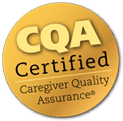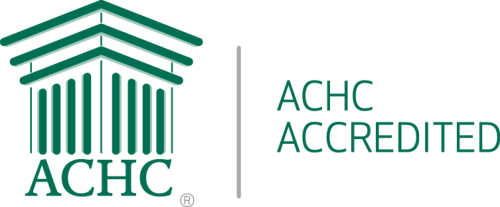
Sensory changes often associated with aging presents a challenge in effectively communicating with the elderly. As a caregiver, you need to understand that these barriers can cause difficulty and frustrations for the senior which will result in their withdrawal in engaging to other people, anger, and at times embarrassment. Thus, the following tips will help you in effectively communicating with your elderly client:
- Exercise Patience and Compassion
It goes without saying that patience and compassion are often needed when dealing with the elderly. Physical challenges, slow movement, forgetfulness, neediness, and apathy are just some of the behaviors you might encounter. Sometimes it’s easy to lose patience and become frustrated. One might even be tempted to give up and walk away.During these moments, it’s very helpful to put yourself in the senior’s shoes, even for just a moment. Consider the older adult you’re dealing with, and complete the sentence: “It must not be easy…,” or “It must be hard….”
- Ask Instead of Order
One of the core needs of many seniors is to feel relevant and respected. You can help validate these needs by frequently asking instead of ordering when communicating with the older adult. For example: Instead of: “You’re having soup for lunch today.” Say: “Would you like to have some soup for lunch?” or “We’re having soup for lunch today, okay?” - Ask Instead of Assume
Similarly, ask questions instead of making assumptions when it comes to your actions in relations to the older adult. For example, instead of turning the lights off in the senior’s room without asking, say “I’m going to turn off the lights for you, okay?” If the senior protests, let her have her way if it’s harmless, or explain why it’s important for you to do what you need to do (in most cases for the sake of senior’s health and well-being). - Use “I” instead of “You” Language
We know from the study of effective communication that people (including many older adults) generally don’t respond well when they feel like they’re constantly being ordered what to do. Such “bossy” language is often manifested in the use of “you” statements, followed by a directive. For example: “You must exercise today!” - Offer Choices Whenever Possible
Many older adults desire to maintain a sense of independence. This may be especially important when seniors feel their physical and cognitive limitations, but still desire ways to maintain some level of local control in their lives. Whenever possible and appropriate, offer an older adult choices when interacting with them. This can be something as simple as asking whether the senior would like to have choice A or choice B for lunch. - Listen
This is the most important consideration when you want to communicate with the elderly. Through listening, you are letting your client know that your attention is with them. Even though they might have difficulties in verbalizing what they want to say, you must let them feel that you are attentively engaged to what they’re saying by smiling, nodding, or by saying a word of acknowledgment. - Maintain eye contact and sit face to face
When you talk with your senior clients, you need to always establish an eye contact. This will allow the elderly to be able to read your facial expressions and at the same time focus on what you would like to say.Sitting face to face with an elderly person can help to facilitate communication, according to the American Academy of Family Physicians (AAFP). Many older people have visual or hearing loss and may rely upon lip-reading or facial cues to understand what you are saying. Sitting face to face also helps to eliminate visual distractions, and will give them the feeling that you think they are important.
- Consider residents’ culture beliefs and values when communicating.
Although it is impossible to understand the fine details and nuances of every culture, developing a general understanding of clients’ beliefs and norms can assist with effective communication. Ask the client open-ended questions, actively listen, and gauge their preferences.

 Published June 30, 2017
Published June 30, 2017





